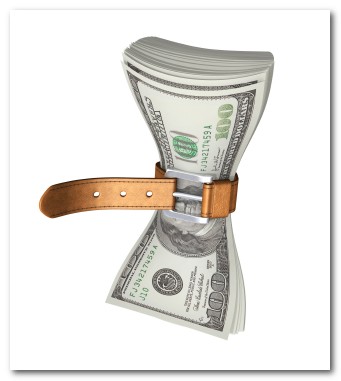What Is Better Than Free?

Have you noticed a lot of content is turning into paid content lately?
In many cases, it's because the advertising revenue model isn't working so well.
Bob Massa posted in the SEOBook forums recently:
Internet advertising in all its glorious forms we know it doesn't work. If it did, newspapers and magazines would be enjoying a season of power and control they haven't held since the early 20th century. But they are not. Instead they are dying. Same goes for the entire TV industrial complex. And keep in mind that if anyone on the planet knows advertising and how to sell it, it would be TV and print. But they are dying while trying very hard to find a way to wiggle in and salvage some face, (and revenue).
It's a good point.
If advertising is so lucrative, why are advertising driven companies, like newspapers, struggling? If this advertising worked well, then the advertising rates would surely be a lot higher than they are now.
Of course, people do make money with internet advertising. Just look at Google. But, for those without massive scale, traffic is getting more and more niche-ified and dispersed, yet conversion rates are staying around the same level - 3-4%. The task of making money out of your site becomes harder and harder. There are only so many advertisers to go around, and there is a low barrier to entry to markets, which means a steady stream of competition.
How many people are frustrated with Adsense? The Adsense model relies on sending people away from your site. Without an increasing stream of visitors prepared to click on the ads, this model is difficult to scale, especially in high value niches.
The Economist recently featured an article entitled "The End Of The Free Lunch Again":
Google’s ability to place small, targeted text advertisements next to internet-search results, and on other websites, meant that many of the business models thought to have been killed by the dotcom bust now rose from the grave. It seemed there was indeed money to be made from internet advertising, provided you could target it accurately—a problem that could be conveniently outsourced to Google. The only reason it had not worked the first time around, it was generally agreed, was a shortage of broadband connections. The pursuit of eyeballs began again, and a series of new internet stars emerged: MySpace, YouTube, Facebook and now Twitter. Each provided a free service in order to attract a large audience that would then—at some unspecified point in the future—attract large amounts of advertising revenue.
Now the bubble has burst, internet companies are again laying people off and closing their doors. It turns out not many businesses can live off advertising alone, especially in a slump.
So, if advertising isn't really working, what can you do instead?
Better Than Free
You've heard the saying "information wants to be free"?
Information may want to be free, and those consuming the information may want it to be free, but how will the publisher earn a living? If the publisher isn't paid, s/he will stop publishing and do something else. Publishing high quality material consistently takes a lot of time and effort.
But the internet makes information easy to copy and redistribute, thus driving down it's value in dollar terms.
The newspaper business is stuck in this trap. Stories can be copied. Stories are abundant. Newspapers only survived up until now because they have been able to exploit monopoly positions based on geography. The internet has blown that barrier to entry wide open.
There's a great article on The Technium which helps illustrate both the problem, and the solution. It's a great read.
When copies are super abundant, they become worthless.When copies are super abundant, stuff which can't be copied becomes scarce and valuable. When copies are free, you need to sell things which can not be copied".
We've talked a lot on this blog about networking and building up brand. Part of the reason this strategy works in the long term is that you're building up something that cannot be copied. In so doing, you're creating a barrier to entry.
So what can't be copied?
Technium proposes adopting some of the following qualities
- Trust - When all else is equal, you'll prefer to deal with someone you trust
- Immediacy - many people will pay to see new release films, but little for or nothing for them six months later. Be first.
- Personalization - customize an offering to individual preferences. It is more time consuming, but it encourages a relationship
- Interpretation - Red Hat give Linux away but sells the support service. So is the software really "free"?
- Authenticity - if you buy a knock off, it doesn't feel like the real thing.
- Accessibility - could you make free products more accessible? Charge for that service. Related to nterpretation.
- Embodiment - the music is free, the concert is expensive
- Patronage - people WANT to pay. It lets them offer a token of their appreciation. Make it very easy to do.
- Findability - Google works on this premise.
What aspects can you roll into your service or product? What other qualities are "better than free"?




Comments
There is certainly a shift in media outlets. I have been reading a lot lately about "digital signage" and "mobile marketing" as the next big media outlet channels. It seems to all be going digital.
Add new comment